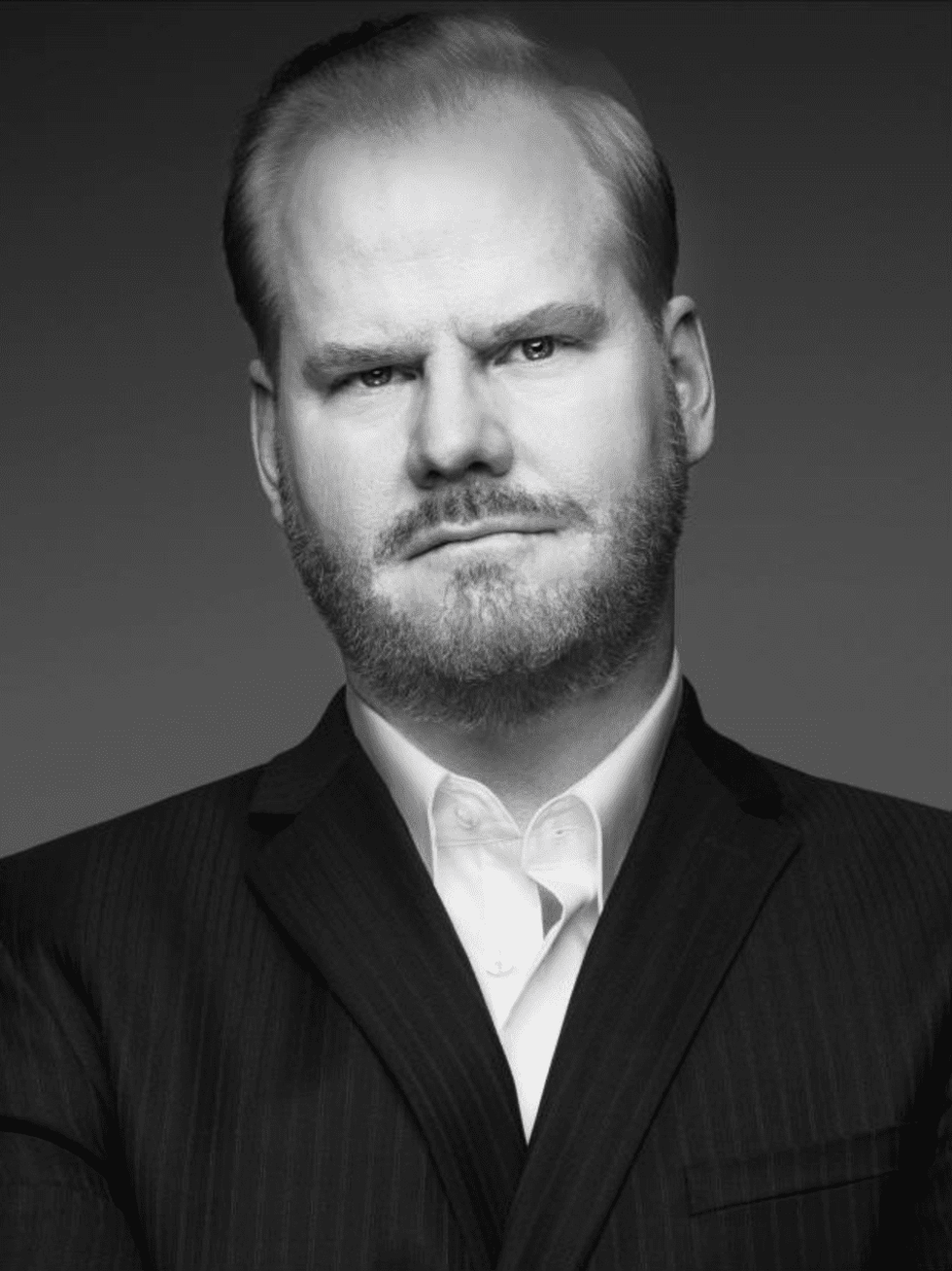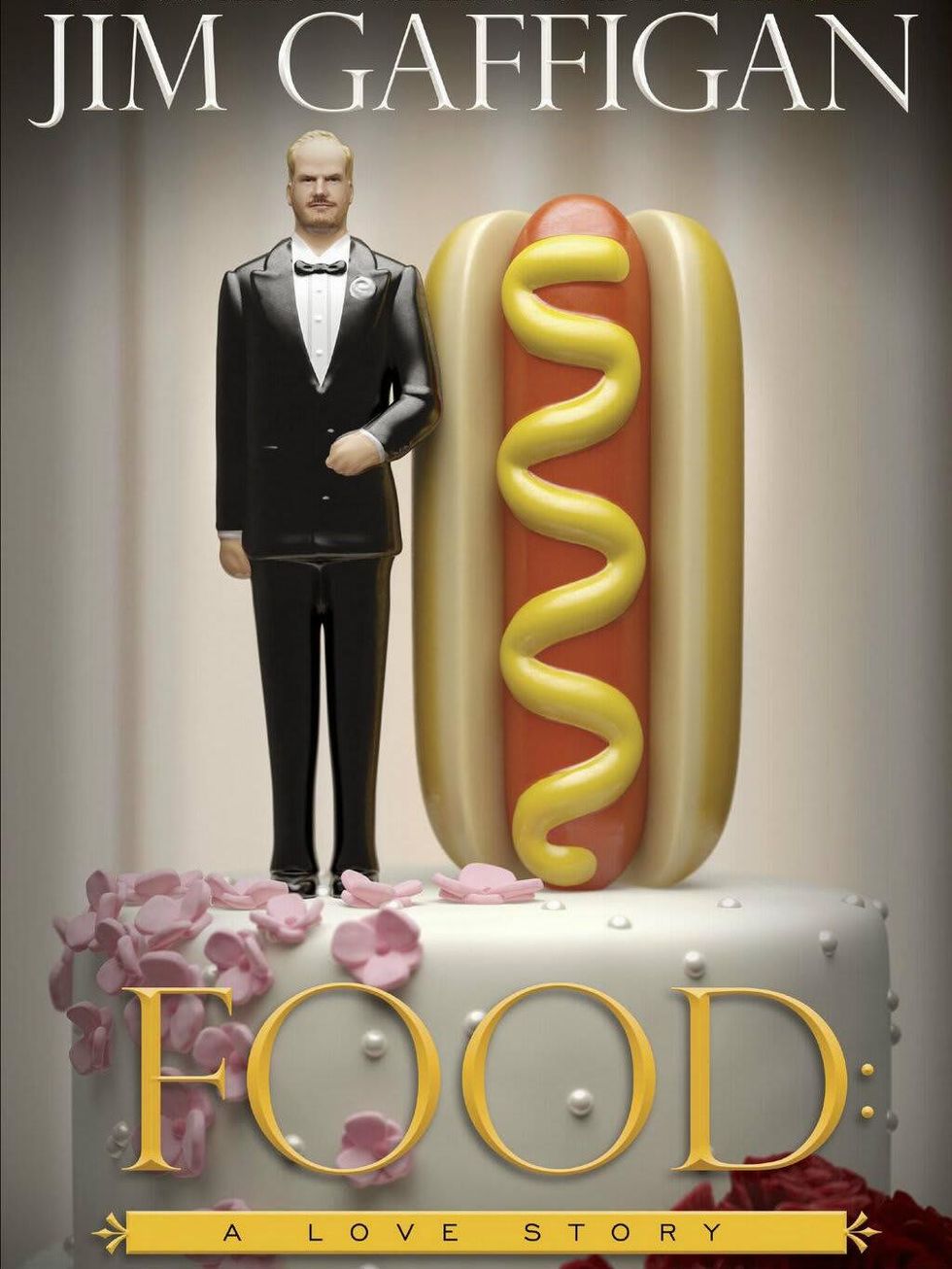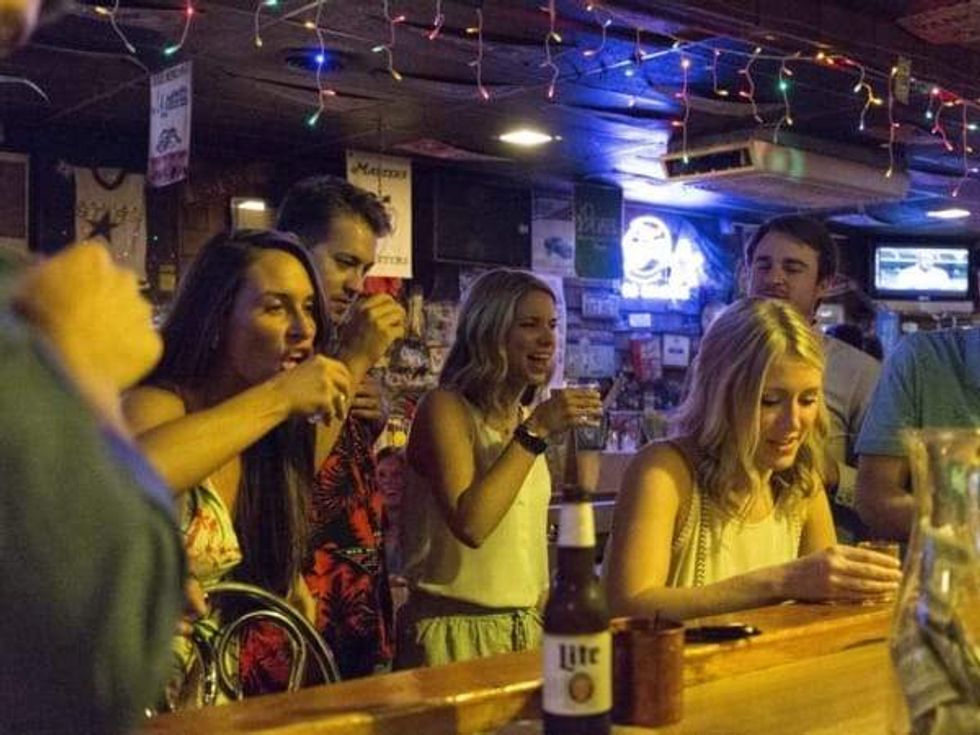The CultureMap Interview
Jim Gaffigan talks Texas cuisine, gluttony and why mean comedy sucks
A little more than a decade ago, stand-up comic, actor and writer Jim Gaffigan caught the attention of audiences with hilarious observations, voices and viewpoints on life in America. His smash success came with a routine about Hot Pockets. His material focused on everyday struggles.
In his new book, Food: A Love Story, Gaffigan explores a variety of topics, including “the geography of American food,” Whole Foods and why America is obese. Composed of essays, the book includes jokes from previous stand-up specials but also expands on these routines, giving background and context to some of the bits. The funny lines, anecdotes and theories make it a worthwhile read even for seasoned fans.
Gaffigan represents a self-aware version of the average American, or “Everyman.” He enjoys the simple and delicious (like Tex-Mex food) and accepts the shameful without guilt (like Hot Pockets), all while observing and lampooning the absurd and the excessive.
“The convergence of amazing Tex-Mex, steak and barbecue makes a visit to Texas really kind of a fun eating adventure,” Gaffigan says.
He has a keen ability to laugh at himself for his overindulgence in a way that puts the audience at ease about their gluttony so that we can take a deeper — albeit hilarious — look at ourselves.
Now on tour to support his new book, Gaffigan spoke with us about stand-up, writing and, of course, food. He performs and signs books on October 22 at the Verizon Theatre in Grand Prairie (and tickets are still available).
CultureMap: By our count there are 63 chapters in this book but only 340 pages. What motivated you and your wife to write in that manner?
Jim Gaffigan: Food is something that has really dominated my stand-up. I’ve always talked about a range of things, but food has been present. After Dad Is Fat, they wanted another book, and I had always contemplated doing a set of essays on different food items. What I learned from Dad Is Fat is that essay writing is a great outlet for a bunch of ideas that are not good for stand-up but work in essay form.
I was excited to write an essay on crackers or bratwurst. That was the fun and the challenge of it. There’s still stuff I could’ve put in the book. It’s enormous. When I was done, I was like, “I have a problem,” but first I need to get something to eat.
CM: Thanks for pointing out in your book that Texas is one of the most diverse culinary regions in the country. Are you excited for some meals while you’re in town?
JG: It was fun when I was planning these combination book signings and stand-up shows. When determining where to tour, I had to selfishly go to places where I wanted to eat. The convergence of amazing Tex-Mex, steak and barbecue makes a visit to Texas really kind of a fun eating adventure.
“I strongly believe that people are the same. I think we’re all kind of flawed but all beneficiaries of luck.”
I remember the first time I performed in Dallas, over a Thanksgiving weekend; I went with my wife (girlfriend then) to a steakhouse called [III] Forks, I think. They had 500 tables, and I thought to myself, this is a place where everyone appreciates steak.
CM: You write that one of America’s issues in its relationship with food is that we need new foods constantly and a variety of them. Why do you think this is?
JG: I think that “new” is a very American thing. New and young is valued here. There’s a value put on that that seems uniquely American. Texas might be bigger on that too.
But new, reinventing things is important. Finding the better burger restaurant, for example. It’s an ongoing adventure. The best example is the Jim Beam jalapeño flavored sunflower seeds. How bored are you with eating sunflower seeds?
At the Indiana State Fair they had deep fried alligator bits. Imagine someone saying, “I only like alligator if it’s deep fried.”
CM: Usually when people reject the culturally superior they take pride in their way of life (like in country music). But you tend to point out the follies of your way too. How does that dichotomy work?
JG: I’m flattered. I want to be authentic and also not be divisive. I love the idea that there’s the evangelical Christian family sitting next to the lesbian couple in my audience. Growing up we weren’t so divisive in this country, and it didn’t really matter.
There’s something about resenting the divisiveness of our culture. Some might think that there’s this notion of the college kids criticizing the townies. I come from a small red state and I live in New York. All my friends are atheist. I understand both sides, but I don’t appreciate the teen mentality.
CM: Where did the inner voice of the audience, which you do onstage as an aside, come from?
JG: That was always a part of my personality as a teenager. I’d talk for a friend to diffuse the situation, so I can communicate an awareness. It’s an easy tool.
Robin Williams’ comedy was generous, not mean. I don’t like mean comedy. No one got hurt by his statements.
I love in stand-up how you can jump to a different point of view and deliver a punch line. There’s an improv element to it where it keeps it organic and fresh.
Audiences are different, so the conversation you have with the audience should be informed by the difference. There is no fourth wall in stand-up. Whether it’s a college campus or corporate event, that voice facilitates the conversation better.
CM: What role do you feel your comedy plays in the national conversation on obesity and health?
JG: I had this conversation a couple days ago with someone, and I think that culturally there is obviously an obesity problem, and as a culture we’re trying to figure out how to deal with it. There’s a bit of crudeness in how we deal with it. There’s an insensitivity toward fat people.
I think that time will tell; I don’t think that time will be nice to that show The Biggest Loser. You look at it, and it’s like, alright, there’s these skinny people yelling at fat people. Culturally there’s this condoned criticism of big people.
I’m overweight but not morbidly obese, but in the future we’ll say we were mean to the obese.
CM: You have pointed out a few times that we all suffer from gluttony in some way. When discussing looking down on those who eat McDonald’s you point out that we all “have a McDonald’s” in our lives. What is your goal with saying that?
JG: I strongly believe that people are the same. In entertainment there’s an A list and B list, but in the end we’re all this failed species. I think we’re all kind of flawed but all beneficiaries of luck.
We were born here rather than Ethiopia. We’re not better because our parents made it possible for us to go to college. We’re lucky.
CM: Who or what outside of stand-up comedians has influenced you?
JG: Bill Murray’s sense of humor influenced me. That sarcasm. Letterman — I never saw him as a stand-up guy, but I saw him as a host who was sarcastic but inclusive.
I think that growing up in Indiana and seeing John Mellencamp on SNL had a big impact on me because he was also from a small town in Indiana and he was on a TV show my siblings were watching.
CM: What is one thing someone who hasn’t seen you do stand-up (outside of maybe Hot Pockets) should know when they come to the show?
JG: I’m not a rock star comic. People who come to my show come to laugh, not to see what I wear or the celebrities I hang out with. There’s nothing fancy. It’s all substance, no style.
CM: Do you have any thoughts on the passing of Robin Williams?
JG: I met him a couple times, and he was so nice. You meet people enough in the entertainment industry that you can tell when someone is being diplomatic, aloof or a climber. He seemed like a really nice guy.
When he committed suicide, as a comedian there was part of that that was a reminder that we’re all crazy. I don’t think of myself as a fraction of the talent Robin was, but we’re comedians, we’re these weirdos. As talented and successful as he was, depression was this cruel thing for him but also what made him genius and funny.
His comedy was generous, not mean. I don’t like mean comedy. No one got hurt by his statements. Also, I wore Mork suspenders when I was little.



 Step inside the Time Out Tavern.
Yelp
Step inside the Time Out Tavern.
Yelp